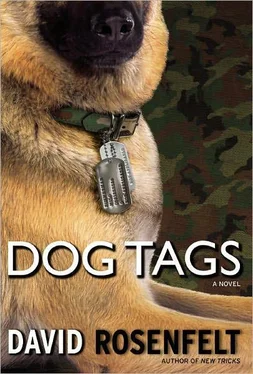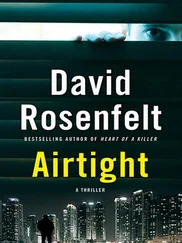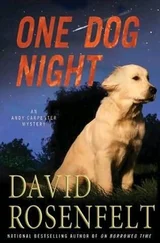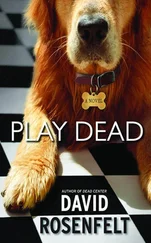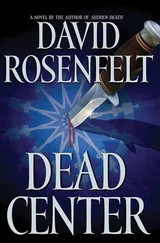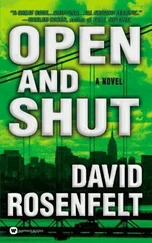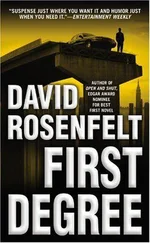“Anything you want to tell me?” Laurie asks.
“You look great,” I say.
“I meant about the case.”
“No,” I say.
“Good.”
CHAPTER 67
OUR FIRST WITNESS IS ARMY CAPTAIN NATHAN KERSHAW.
He is from the inspector general’s office, and will testify to the contents of the army’s investigative report on the explosion in Iraq. Colonel Mickelson has arranged for this to happen, probably motivated by his desire to please General Prentice.
Captain Kershaw is at least six foot three, and looks like he weighs about 160 pounds. He’s blond and talks in a slow, Southern drawl, peppering his answers with a bunch of ‘sirs.’”
I take him through the events of that day in Iraq, which he is thoroughly familiar with, even though he wasn’t there. In a sense he’s an expert witness, with his expertise his knowledge of the report itself.
When I’m sure the jury has the proper context, I get to the meat of his testimony. “Captain, were any members of the army discharged as a result of this report and the events of that day?”
“Yes, sir. Five members of the military police.”
“What are their names?” I ask.
“Sergeant First Class Jeremy Iverson, Sergeant First Class Jason Greer, Sergeant Raymond Santiago, Sergeant Donovan Chambers, and Corporal Tyler Lawson.”
“Were they found responsible for the explosion?”
“Not exactly, sir. They were judged negligent for allowing the perpetrator inside the perimeter.”
“So it was not determined that they acted intentionally?” I ask.
“No, sir.”
“Was it determined that they did not act intentionally?”
He shakes his head. “No, sir. There just wasn’t enough evidence either way. All the investigators could be sure of was the negligence.”
“And they were dishonorably discharged for that negligence?”
“They received OTH discharges, which means ‘other than honorable,’ sir.”
“I see. Does the army keep track of people with OTH discharges after they leave the service?”
He shakes his head. “We surely do not, sir.”
“What did the report say about Major Erskine?”
“Very little; he was not considered culpable, though the overall command structure was held to be somewhat deficient.”
“Did he resign?”
“Yes, sir. He did. Four months later.”
I let Captain Kershaw off the stand, and Eli cross-examines. There’s really nothing for him to gain, since Kershaw has simply and accurately reported on what was in the report. Yet Eli questions him for over an hour, probably because he likes being called “sir.”
I’ve gone back and forth over who to call next. I could go with a witness to the Santiago killing. It just happened, and some jurors may even be familiar with it. It is likely to have the biggest impact, since it is the only certain evidence we have that one of the soldiers was killed. For that reason, I’ve decided to save it for last.
I call Lieutenant José Alvarez of the Albuquerque Police Department to testify regarding Tyler Lawson, who is still listed as a missing person. I would have been better off with an officer from Vegas, since that’s where the disappearance took place. Unfortunately, but logically, it was a hell of a lot easier to lure someone to New Jersey from Albuquerque than Vegas.
Alvarez relates the basics: that Lawson had gone to Vegas for an apparent holiday, then went off with some guy and was never heard from again. The clincher, of course, is the safe loaded with cash that he left behind. The jury does not have to be filled with Rhodes Scholars to understand the significance of that fact.
Alvarez also reveals that a further search showed Lawson to possess assets of almost five hundred thousand dollars, sitting untouched in a money market account. The money had been wired in from a Swiss bank account that could not be traced back.
“So taking all of these factors into account, have you formed an impression as to where Mr. Lawson might be?”
“I believe that he is the victim of foul play, and is likely no longer alive.”
Eli points out on cross that Alvarez has no real knowledge of Lawson’s whereabouts, and that it is possible that he ran off with a woman, possibly to return any day. Alvarez admits that anything is possible, but his experience tells him that there is little chance that Lawson will ever return.
My last witness of the day makes me a little nervous, but I call Willie Miller anyway. He is there to testify about his trip to Nassau, and his conversation with Inspector Christian. I introduce the affidavit that Hike got the inspector to sign, and Willie’s really up there as a witness seat filler, merely to recount and read from the affidavit.
I would have liked to introduce evidence that someone from Nassau, perhaps a rental car agent, had recognized and remembered M, but no such identification has been made.
I’ve gone over with Willie the importance of sticking to the facts and not going off on a tangent. He handles it pretty well, at least on the direct testimony. When I turn him over to Eli for cross-examination, my heart is in my throat. There is no telling what he can get Willie to say.
“I have no questions for this witness,” says Eli.
Thank you, God.
Thank you, Eli.
Not necessarily in that order.
CHAPTER 68
HIKE COMES OVER AFTER COURT SO THAT WE CAN GO OVER THE TAPE. He brings with him his list of which stories could possibly have upset Alex Bryant and prompted his phone call to his boss. Sam is supposed to come over in a little while with the phone records; hopefully we can match them up.
It’s almost six o’clock when Hike gets there, and Laurie asks him if he’d like to have dinner with us before we start on the tape. He eagerly accepts the invitation, a decision I think he regrets when he discovers that Marcus will be sitting across the table from him.
Laurie makes chicken parmigiana, one of her few hundred specialties. Hike spends the entire meal trying not to look at Marcus, who only says one word: “Yuh.” But he says it three times, it serving as an affirmative response each time Laurie asks him if he wants more chicken.
Suffice it to say that this session will never be confused with the Algonquin Round Table.
I can see Milo and Tara lying on beds in the den and not looking too pleased. Milo’s triumph in finding the envelope has resulted in the termination of the now unnecessary trust sessions. I don’t think he or Tara would be too broken up about that, except for the fact that those sessions were treat and biscuit buffets.
This turn of events is really not fair to them, and I get up from the table and slip them each a couple of biscuits. I can do this secure in the knowledge that I won’t be missing out on any conversational gems at the dinner table.
Once we’re finished eating and Marcus has polished off three-quarters of an apple pie, he goes off to wherever it is Marcus goes off to. Hike, Laurie, and I settle down to watch the tape.
Local news is always boring, and local news that is months old is incredibly boring. It was raining heavily that day, and they kept cutting to field reporters standing in various parts of the metropolitan area, earnestly revealing that things were really wet.
National news barely made an appearance, mostly in snippets between rain reports. I agree with Hike on the four possibilities, though none seems particularly promising. There was a home invasion murder of a business executive and his wife, a rhodium mine explosion in South Africa that resulted in the deaths of two miners, a serious disease outbreak on a cruise ship off the coast of Mexico, and a congressional vote failing to renew a trade agreement with three Latin American governments as punishment for their alleged failure to rein in illegal drug production.
Читать дальше
